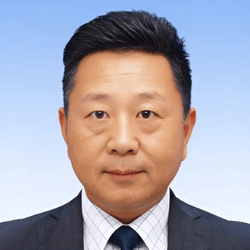
Takashi Kuremoto
Nippon Institute of Technology, JapanPresentation Title:
Parkinson’s disease gray matter MRI classification by deep learning models
Abstract
In this study, we propose several deep learning models for classifying gray matter MRI images of healthy individuals, prodromal Parkinson’s disease (PD) subjects, and diagnosed PD patients. The three proposed models build upon conventional deep learning architectures—MedicalNet3D, ResNet18, and 3D ViT-B16—by performing class-wise feature extraction, with each set of features input into distinct multilayer perceptron (MLP) classifiers optimized through fine-tuning. To reduce overfitting and enhance generalizability, we introduce a training strategy based on group-wise feature fusion, whereby subject IDs are separated to prevent data leakage. Comparative experiments using the PPMI database confirmed the effectiveness of the proposed method.BIOGRAPHY
Biography
Takashi Kuremoto received the B.E. degree in System Engineering at University of Shanghai for Science and Technology, China in 1986, and M.E. and Ph.D. degrees at Yamaguchi University, Japan in 1996 and 2014, respectively. He worked as a system engineer at Research Institute of Automatic Machine of Beijing from 1986 to 1992. He was an Academic Visitor of School of Computer Science, The University of Manchester, U.K. in 2008. He was an assistant professor in Division of Information Science and Engineering, Graduate School of Science and Technology for Innovation at Yamaguchi University, Japan, from 1997 to 2021. Currently he is a professor in Department of Information Technology and Media Design, Faculty of Advanced Engineering, Nippon Institute of Technology. His research interests include artificial neural networks, bioinformatics, machine learning, complex systems, time series forecasting and swarm intelligence and with more than 300 publications.

